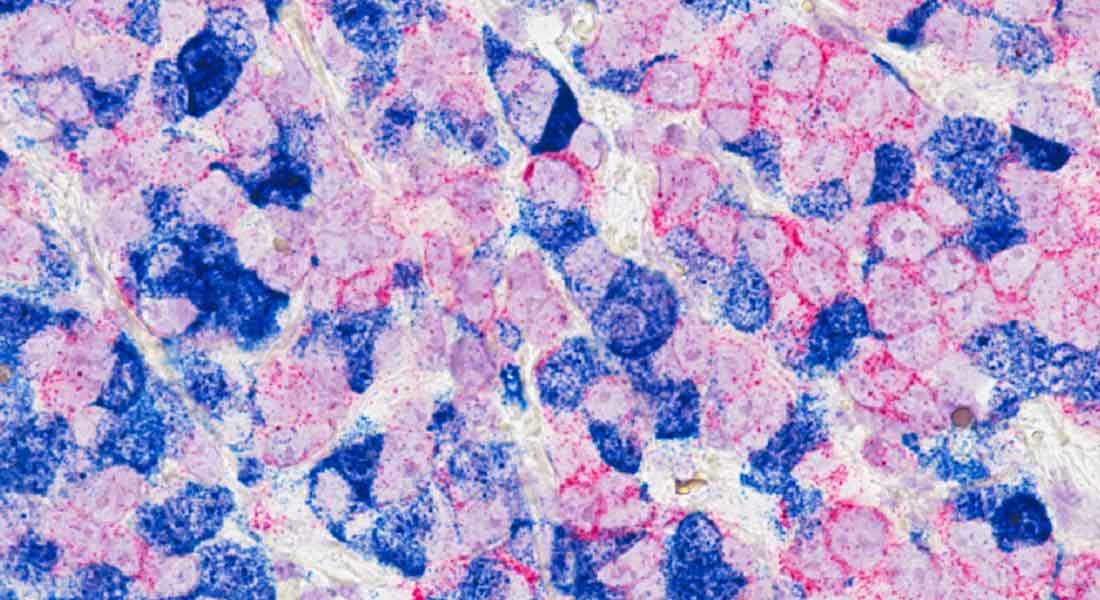Cancer vulnerabilities could get exposed by ‘game changing’ method
How do some people develop resistance to cancer treatment? Now, research from University of Copenhagen shows that a new method called 'Deep Visual Proteomics' may be able to help doctors get closer to an answer and expose cancer tumor’s vulnerabilities.

It is always difficult for doctors to determine why certain illnesses arise in our bodies. Old age, risk behavior such as smoking or genetics can all be part of the puzzle.
However, the exact, individual reasons for serious diseases such as cancer remain elusive.
Now, a new ground-breaking method called 'Deep Visual Proteomics' could help change just that. The method has been invented by an international team of researchers led by Copenhagen University and has been applied to cancer cells in a new study just out in the top scientific journal Nature Biotechnology.
“Our new concept, Deep Visual Proteomics, could become a game changer for molecular pathology in the hospitals. With this method, we can identify thousands of proteins and determine how many of them are there?," explains Andreas Mund, first author of the new study.
"We do this by taking a tissue sample and analyzing just the tumor cells in it. This ‘list’ of proteins is called proteome. These proteomes reveal the mechanisms that drive tumor development and directly expose new therapeutic targets from a single tissue slice of a cancer patient biopsy. It exposes a cosmos of molecules inside these cancer cells,” says Andreas Mund, Associate Professor at the Novo Nordisk Foundation Center for Protein Research (CPR) and part of Professor Matthias Mann’s team that spearheaded this development at CPR and the Max Planck Institute for Biochemistry.
Important to pathology departments
The reason why the researchers are so interested in proteins is because they actually are some of the most important pieces of the puzzle for almost all diseases. Because proteins can be referred to as the 'workhorses of the cell’.
“When something goes wrong inside our cells and we become sick, you can be sure that proteins are involved in a wide range of different ways. Because of this, mapping the protein landscape can help us determine why a tumor could develop in a particular patient, what vulnerabilities that tumor has and also what treatment strategy might prove the most beneficial,” says Matthias Mann, professor.
In the new study, the researchers applied ‘Deep Visual Proteomics’ to cells from patients with acinic cell carcinoma and with melanoma. This was done in collaboration with researchers at the Zealand University Hospital, Roskilde.
“This unique method combines tissue architecture with the expression of thousands of proteins specific for selected cells. It enables researchers to investigate interactions between cancer cells and their surrounding cells with major implications for future clinical cancer treatment. Recently, we diagnosed a highly complex clinical case with 2 different components and the results from DVP analysis,” says Lise Mette Rahbek Gjerdrum, consultant and clinical research associate professor at Department of Pathology, Zealand University Hospital and Department of Clinical Medicine, University of Copenhagen.
Digital pathology, deep learning, microscopy, and mass spectrometry
Deep Visual Proteomics integrates advances from four different technologies into a single workflow. Firstly, advanced microscopy generates high-resolution tissue maps. Afterwards, machine learning algorithms are used to classify cells accurately before laser microdissections and single cell collection. Then just the normal or diseased cells of a particular type are analyzed by mass spectroscopy, mapping the protein landscape, and understanding the mechanisms of health and disease.
"Using this technology, we can effectively connect the physiological characteristics of cells seen under microscopes with the functions of proteins. This was not previously possible and we are very convinced that this method can be applied to other diseases, not just cancer,” says Andreas Mund.
The new study is published in Nature Biotechnology, 'Deep Visual Proteomics defines single cell identity and heterogeneity'.
The study is highlighted in a research briefing by Nature Biotechnology: Spatial characterization of single tumor cells by proteomics.
Contact:
Associate Professor Andreas Mund
+4535325069
andreas.mund@cpr.ku.dk
